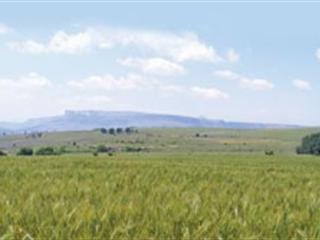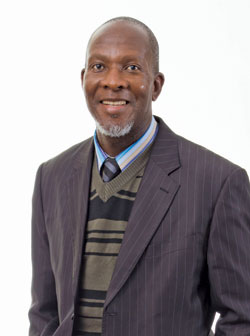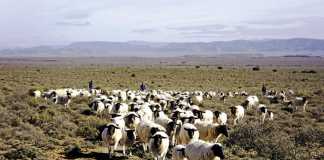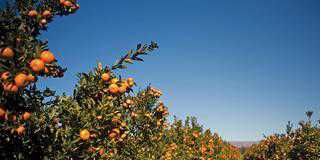
Is the term ‘developing’ or ‘emerging’ farmer still applicable in South Africa? Is it not true that any farmer who produces grain at a profit is a commercial farmer, irrespective of the scale of the operation?
We use the term ‘developing’ farmer as we feel that this could apply to any farmer of any size who wants to develop. We do not use the term ‘emerging’ farmer. This seems to show that we are under something we have to emerge from. However, the fact remains that there are farmers who are not producing grain optimally. Grain SA’s Farmer Development Programme provides those farmers with support and training.
At Grain SA we consider a farmer who is cultivating less than 10ha of grain a subsistence farmer. But it can also be argued that any farmer who sells grain at a profit could be considered a commercial farmer, regardless of the size of the operation. This is, however, an academic debate. Our objective is to assist and support long-term profitable and sustainable grain production.
How do developing and subsistence farmers contribute to food security in South Africa?
Unfortunately there are no statistics available which show how much grain is produced, respectively by the developing and commercial grain producers in the country. We also have no idea how much food is produced by very small or subsistence farmers. Perhaps this is a good thing as we are striving to unite agriculture and move away from splitting the industry along racial lines. We are all farmers and together we want to ensure food security for South Africa.

Victor Mongoato
Give us an idea of the scope of the Grain SA Farmer Development Programme.
The mission of our programme is to develop successful commercial grain farmers and to contribute to income and national food security. We want to assist farmers to make optimal use of the resources available to them. The programme currently has just under 4 000 study group members. We have development personnel in Bothaville, Kokstad, Ladybrand, Bloemfontein, Sannieshof, Nelspruit, Belfast, Vryheid, Mthatha and Paarl.
We have a number of projects within our broader programme. These include study groups, best practice demonstration trials, farmers’ days and individual support to more advanced farmers. We also have the Pula Imvula monthly newsletter with a circulation of 20 000 in seven languages. Our 24 training courses are accredited by AgriSETA. Over the past years we have held over 700 week-long training courses attended by over 14 000 farmers.
How is the programme funded?
The programme is funded by the Maize Trust, the Winter Cereals Trust, the Oil and Protein Seeds Development Trust, the Sorghum Trust and AgriSETA.
In your experience, what are the main challenges facing developing farmers?
Training and skills development is crucial for farmer development, but training alone is not enough. Many of our farmers don’t have tractors and other implements required, or they lack production finance. Different areas have different challenges. In the eastern parts of the country (Mpumalanga, KwaZulu-Natal and Eastern Cape), for example, where the rainfall is higher, the pH of the soil is low and more lime supplementation is needed.
In many of the communal areas, the lands are not fenced and the crops are often damaged by livestock. There is also a shortage of combine harvesters and storage facilities. We have vast tracts of land that are not yet utilised optimally. This leaves room for our farmers to expand and to produce food for the country and for the SADC region.
What have been the biggest mistakes in terms of developing farmers?
There are two major challenges – many institutions ‘farm for’ developing farmers and they call this ‘farmer development’. Our farmers do not want others to farm for them, they want to be empowered to do it themselves. The government has tried to get contractors to farm for people, but this has failed everywhere.
We must invest in individual farmers and assist them to become successful farmers in their own right. Another problem has been so-called ‘group farming’. Experience has shown that it is almost impossible to farm as part of a group. Remember, one lives by the sweat of one’s own brow.
If you were in government, how would you tackle the issue of land reform in SA?
I would take hands with commodity organisations to assist farmers with production along the respective commodity lines.
Land only has value if it is used. We must ensure that people who receive land are in a position to produce food and fibre for our country.
It is therefore very heartening that Grain SA was approached by the Department of Rural Development and Land Reform last year to facilitate a government recapitalisation programme in the Free State worth R16 million. This year, we will be involved in phase 2 of the Free State programme, worth R8 million.
We are also involved in a R13 million recapitalisation programme in Mpumalanga and a R40 million programme in North West.
We’ve also recently entered into an agreement with the North West agriculture department to run a R138 million recapitalisation programme in the province, mainly for communal farmers. This project is so big that we’ve appointed 18 additional mentors in the province.
Grain SA’s 2012 Developing Grain Producer of the Year, Israel Mothlabane, says a large part of his success is due to training from the farmer development programme.
Contact Victor Mongoato on 082 770 4710 or email at [email protected]













